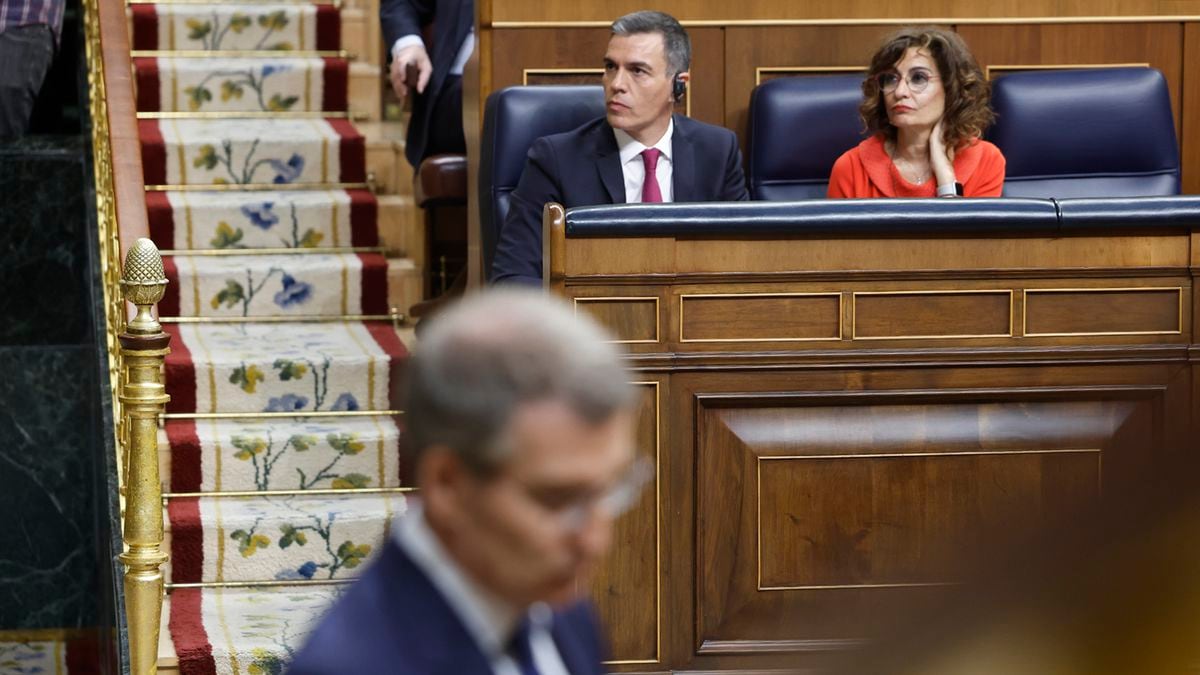Enlarge image
Production (at Volkswagen): "Significant slowdown in economic activity" with gas supply stop
Photo:
Nancy Heusel / Future Image / IMAGO
The International Monetary Fund (IMF) only expects comparatively meager growth for the German economy this year and next.
The gross domestic product (GDP) is likely to increase by 1.2 percent in 2022 and then only by 0.8 percent, as the IMF announced in its updated Germany report.
»The war in the Ukraine creates a new headwind«.
These included a cut in gas supplies from Russia, higher energy prices, shortages of key inputs, weaker external demand and tightening financial conditions.
If Russia were to stop gas supplies, the German economy would shrink: Gross domestic product would then fall by 1.5 percent this year.
As recently as May, the fund had declared that growth would cool down from 2.9 percent in the previous year to around two percent in 2022 and be slightly more than two percent in 2023.
Last year he had predicted 3.9 percent.
"The main threat would be a permanent halt to Russian gas supplies to Europe, which could lead to a significant slowdown in economic activity and rising inflation," the Washington experts write.
In their analysis, the economists played through this scenario: A complete failure of Russian gas imports would reduce German gross domestic product by 1.5 percent in the current year, by 2.7 percent in the following year and by 0.4 percent in 2024.
IMF: Reduced supplies for private households conceivable
The damage to economic output caused by a supply freeze could be "considerably reduced" if energy-intensive companies were taken into account when rationing gas;
According to the report, this would mean that private households would also have to bear part of the burden due to reduced gas supplies.
The IMF experts are concerned about the gas supply in the cold season.
In the coming winters, gas storage levels in Germany could drop to "dangerously low" levels of just over ten percent of capacity, the report says.
This could lead to a noticeable gas shortage for a limited time and region – but also nationwide, “if the temperatures are lower than expected”.
"Incentives to save energy" through increased prices
The IMF recommended that the government in Germany cushion the consequences of the increased energy prices “for the most vulnerable households”.
However, he also advised passing on the increased gas prices to end users "to provide incentives for saving energy".
sol/AFP/Reuters



/cloudfront-eu-central-1.images.arcpublishing.com/prisa/K5MEQYX754ZCFV3SALU5I2KWQQ.jpg)



